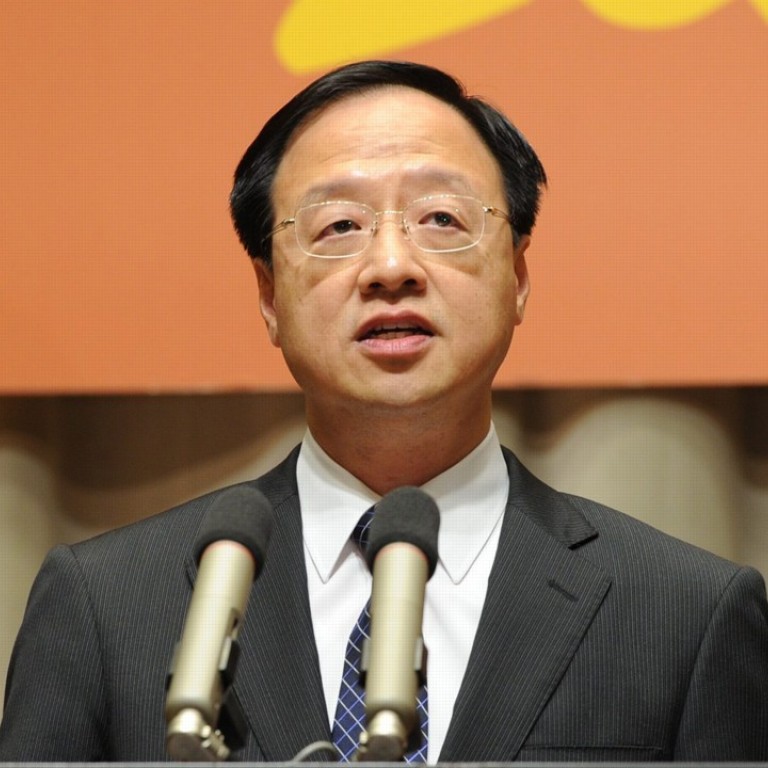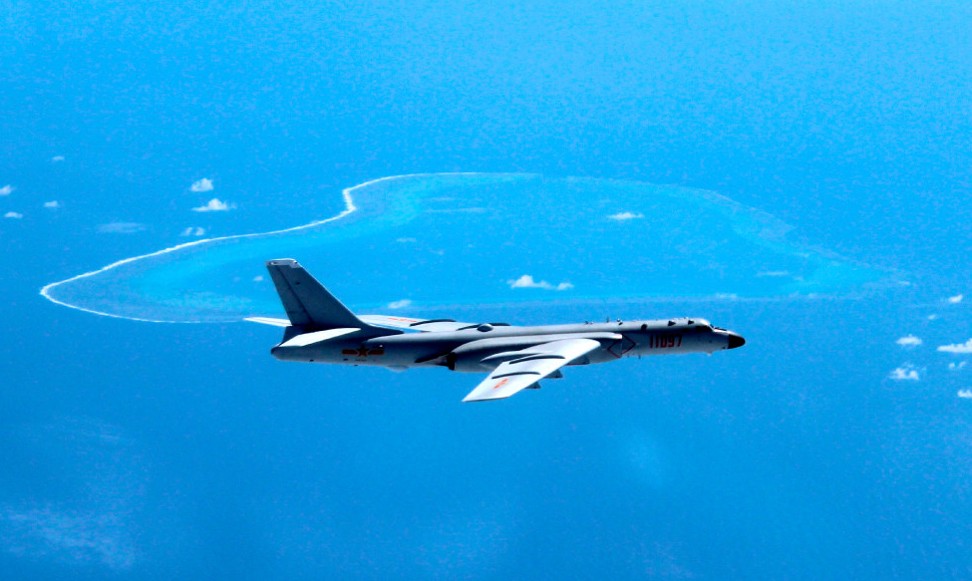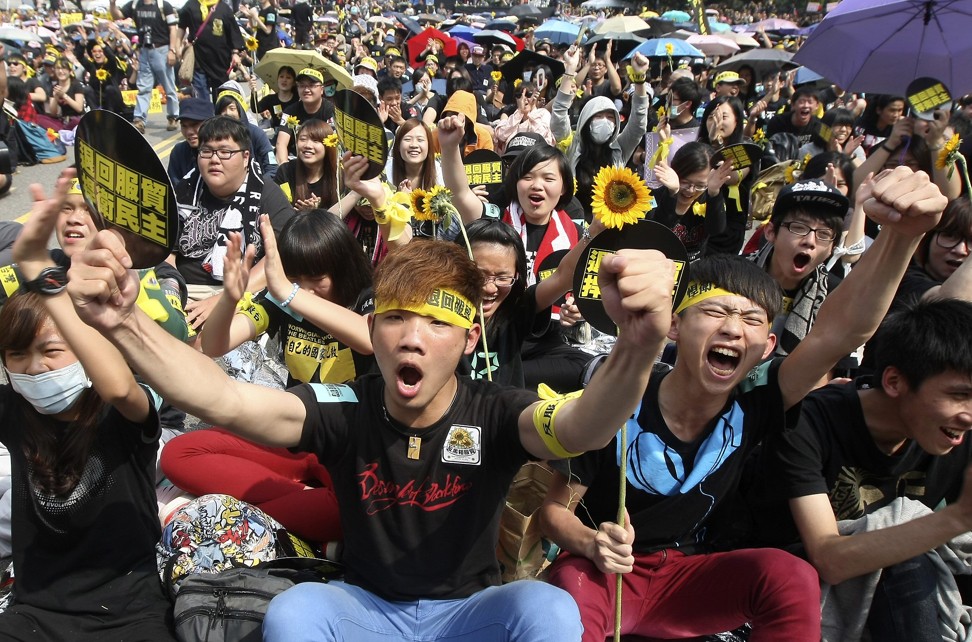
Beijing should stop threatening Taiwan because it’s not strong enough to fight the US, island’s ex-premier says
Attempts to intimidate self-ruled island will not work while PLA lacks military power to prevent American intervention, Jiang Yi-huah says
Former Taiwanese Premier Jiang Yi-huah has warned Beijing to stop using its military to intimidate the island, saying Beijing was not strong enough to deter the United States.
“Military intimidation only works when Beijing makes sure its military might is strong enough to defeat the United States if the People’s Liberation Army is going to attack Taiwan,” Jiang, who was appointed by former Taiwanese president Ma Ying-jeou as premier in February 2013, said on Thursday.
Beijing has stepped up military drills around Taiwan in recent months, frequently sending its H-6K bombers and fighters jets, as well as the PLA’s first aircraft carrier, the Liaoning, to conduct regular “island encirclement” patrols.
On Thursday night, state-run China Central Television broadcast for the first time footage showing J-15 fighters conducting successful nighttime take-off and landing drills on the Liaoning – indicating that pilots had finally achieved a basic requirement for all-weather combat.
Sources close to the PLA told the South China Morning Post earlier that the ultimate goal of the carrier programme was to prevent US naval battle groups from approaching the Taiwan Strait to intervene should Beijing want to attack the island.
Beijing views the island as a breakaway province and has never renounced the use of force to bring it back under its control.
Meanwhile, Taiwan is trying to get closer to Washington. On Friday, the US House of Representatives voted in favour of the US National Defence Authorisation Act, which calls on the US to improve Taiwan’s defence capabilities to counter the mainland’s increasing military muscle.
“The fact is, neither the mainland’s economy nor military developments have yet to surpass the US after decades of rapid development, making military intimidation just a pure brag,” said Jiang, who is now a political-science professor at Hong Kong City University.
“A characteristic of the Taiwan public is that they will not yield to coercion, an adverse effect that Beijing doesn’t want.”
He also argued that military threats would trigger an “eye-for-an-eye” response from Taiwan’s pro-independence forces, which would further harm cross-Strait relations.
Jiang, who has spent the past two years teaching in Hong Kong, said he believed students in the city and in Taiwan were imbued with “civic nationalism”, which was different from the historic “ethnic nationalism”.
He defined the former as being more concerned with values such as freedom, justice, equality and individual rights.
Jiang said the young activists in Taiwan’s Sunflower Movement and Hong Kong’s Umbrella Revolution were people who loved the places where they lived, but their sense of civic nationalism had been channelled into radical movements that allowed them to vent their anger at Beijing and was being used by some pro-independence politicians.
Beijing should spend more time examining where these sentiments came from and come up with measures to deal with their concerns, he said.
At the moment, Beijing was “just focused on using coercive policies to suppress the whole group, which is not a smart move”, he said.



